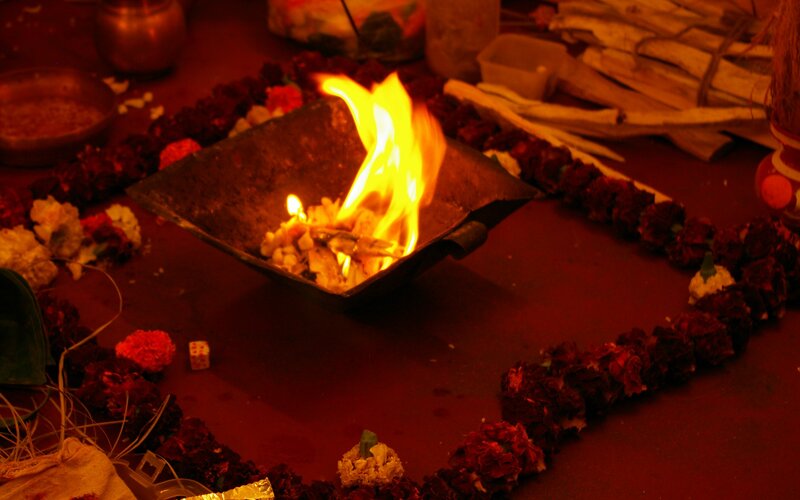Bhakti (devotion) literally means ‘attachment, love, and devotion’ for a deity. In the Bhagavad Gita, Bhakti is explained as the possible paths of spirituality and attaining Moksha. Bhakti is an emotion that requires a relationship between the devotee and the deity. Of course, the only condition is that there should be Shraddha (faith) and Bhakti (devotion) in the mind of the worshiper. In fact, without the two, even elaborate rituals do not give the prescribed results. This is what the Brahmans of YagyasDevam.com strive to inculcate in the worshiper through the act of Yagya.
Puja (Worship) in Yagya means worshiping or rendering services to the Supreme Lord. During Yajna, the supreme deity is worshiped and invoked by the learned Purohits of YagyasDevam.Com. The term ‘Yaj’ itself means to worship or to serve the god.
Jap (recitation of Vedic Mantra) involves the correct chanting of the Vedic Mantras related to a deity. It is necessary that the chanting is done in a correct and proper way otherwise it may give negative results. At YagyasDevam, they are recited continuously and properly by the learned Purohits during Yagya that produce powerful effects on the worshiper. The process of repeated chanting during the Yagya conditions the mind of the worshiper and takes them up to the higher states and forms the path to great liberation and success.
Hawan (fire sacrifice), is the act of oblation/offerings to the holy fire. The fire sacrifice is the central ritual of Vedic tradition. As it is all about giving, therefore persons are advised to give with as much grace as they can, rather than a sense of obligation.
Daan (donation) is considered the supreme duty of mankind. The importance of charity and its glory is immeasurable. When you give something to a needy person, the happiness and satisfaction they get from it can do wonders in your life. So, after the Yajna is complete, the donation is made to Brahmans or needy persons to enhance the effects of the Yajna.
Brahman Bhojan means giving food to the Brahmans. It is said that Brahmins have taken birth from the mouth of Lord Brahma. Hence, donating or feeding Brahmins is considered very fruitful. At Yagya Devam, the good act of feeding the Brahmans to attain their blessings is done to attain their blessings for the happiness, peace, prosperity, and wish fulfillment of the worshiper.


